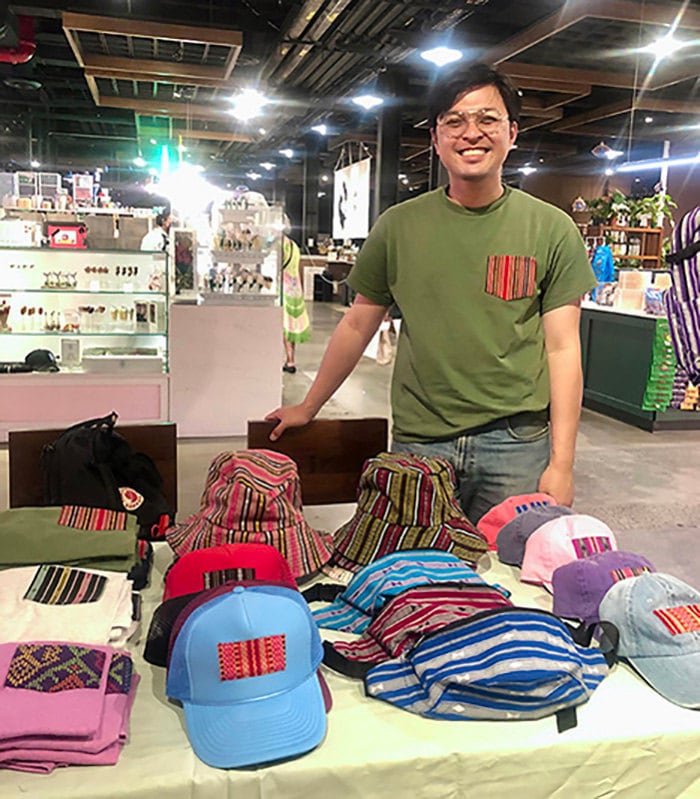Excerpt from article written by Vina Orden on September 2, 2022
Paulo Manaid, owner and designer of the clothing and accessory brand Natibo ATBP (pronounced “at iba pa,” Tagalog for “and more”), was an early donor to the coffee runs and one of the vendors Augee invited to participate in a pop-up at Kabisera. Before the pandemic, Paulo’s primary source of income was selling his signature tote bags, sweatshirts, and hats that incorporated handwoven fabrics from indigenous communities in the northern Philippines at pop-ups all over the city.During the lockdown, he shifted to making and selling masks online to stay in business. On a video call, he recounted the dearth of places where vendors could engage with and introduce their products in person to potential customers—that is, until Augee opened Kabisera’s doors to them.“That’s how it started, bringing in these different Fil Am–owned small businesses to uplift them,” Paulo said. “The first pop-up was a success, so we started doing it every weekend. People came to experience a little bit of the Philippines with us and at the same time helped small businesses survive.”Paulo observed that the pop-ups drew second- and third-generation Fil Ams from beyond the New York metro area. He distinguished between first-generation Fil Ams like him who felt they had to assimilate in order to be “accepted” into American society and younger generations born and raised in the United States and who now are trying to connect with the culture their parents have suppressed.“It’s the opposite of how we grew up—they want to be more Filipino. They want to learn about the Philippines, how life is. They’re very interested in the food and connecting to the culture by supporting our businesses. And it’s great to see a lot of awareness among young Fil Ams.”Paulo sees Natibo ATBP as a “gateway” to the culture for his Filipino and non-Filipino customers. They usually are drawn to the bright colors and patterns of the fabric, which often are mistaken for Peruvian or Guatemalan. Most of them don’t know anything about the Philippines, let alone its handwoven fabrics.“I remember one of the weavers I worked with in the Philippines saying that the story about the fabric is what will help me sell, and I have to say that is true. Part of my job is being an ambassador, a teacher. I tell customers about indigenous communities in Abra and other places that continue the tradition of weaving. I distinguish between the fabrics I use, which are meant to be sold to the general public, and the fabrics they weave with symbolic colors and patterns for sacred community rituals like marriages and burials.”
https://aaww.org/not-business-as-usual-from-coffee-runs-to-pop-ups/

